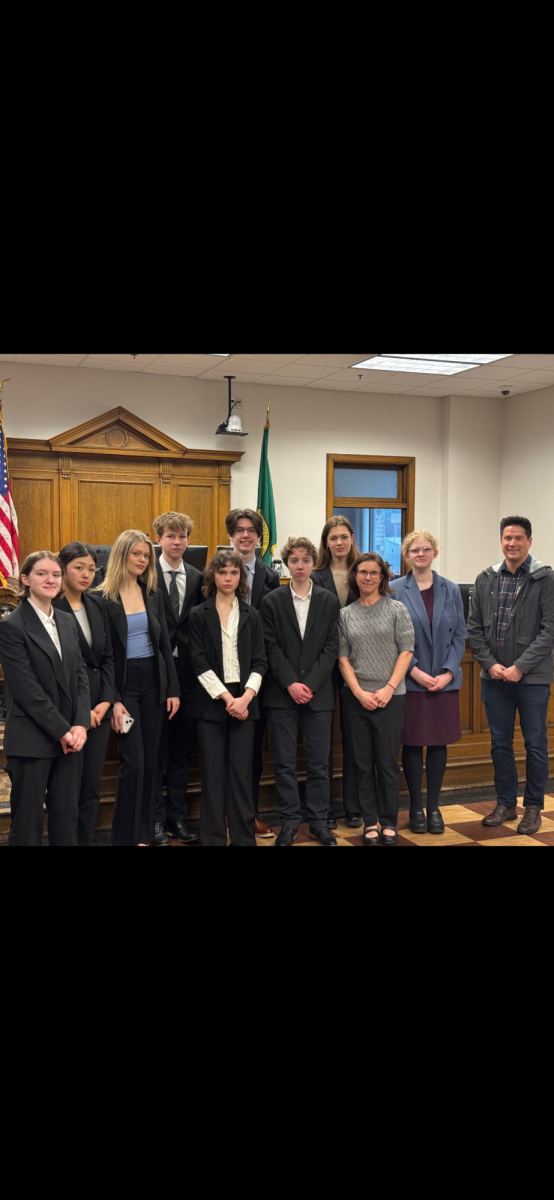The names of our generation
Ceci Atkins, Staff Reporter
Originally published February 13, 2015
For centuries, the names our parents have bestowed upon us have held a hidden, deeper meaning. It is often said that the names parents choose for their children embody the parents’ dreams and values. Whether they were selected out of a pastel colored baby name book or simply from the family tree, each individual’s name holds a unique story.
As new time periods start, new meanings behind names emerge. From the medieval times when people were named after the jobs they worked or the current sovereign power, to current day where many are named after famous singers or sports players of the time, each name reflects somewhat of a lost history: a way for people to hold onto the past.
As times have changed and fads have transformed, so has the purpose behind each and every name. It’s in human nature to want to fit in with society, so people were named accordingly. Throughout the 1950s, the top 50 most common names accounted for more than 50 percent of the babies born in the United States. According to Livescience, beginning in the 1960s, when individualism began to become a common trend, names started to become increasingly unusual and unique.
Being named after a family member such as a passed grandmother or grandfather is not uncommon throughout the Ballard-sphere, but neither is being named after a famous basketball player or a co-signer on the Declaration of Independance. Sophomore Payton Lawson shared the story of how it came to be that he was named after Hall-of-Famer Seattle Sonics player Gary Payton.
“My parents saw the name on the back of a newspaper that showed his jersey that read ‘Gary Payton’ and they thought it was a good idea to name me after him,” Lawson said.
The well known Kardashians, all having names so cleverly beginning with “K,” take the name game to another level. But others have taken it even further. Instead of naming kids around the theme of one letter, the Lepse family has thematically named their children after the Chicago Cubs.
Driven by enthusiasm for the Cubs, Lepse’s father named two of his daughters after Cubs players: sophomore Kerry Lepse after pitcher Kerry Wood and her older sister, senior Samantha Lepse, after the famous outfielder Sammy Sosa. Topping the name trifecta off by naming the youngest of the Lepse sisters, Addison, after the cross streets of Wrigley Fields, made the Lepse family one coordinated ode to the Cub.
The randomness behind names seemed to be a recurring theme amongst students. No longer do the top 50 common names dominate our generation. Sophomore Simon Czyzewski’s name came almost by mistake.
“My dad wanted to name me after someone who signed the Declaration of Independance,” Czyzewski said. “He picked a name at random off the document, and thought that it read ‘Simon,’ but later we found out that the name he picked wasn’t even Simon at all.”
Some names carry reputations within them, leaving some what of a tribute within them. Junior Lino Mariano carries an homage to a legacy in his name. Lino Tagliapietra is a world renowned glassblower and a friend, mentor and idol to Mariano’s father.
“My Dad is really good friends with him and looks to him as a mentor, so it seemed to work,” Mariano said.
Mariano’s father wanted to display their Italian heritage, so the name was a perfect fit.
Some languages show double significance in a name. Although one may not mean to name their child something deep and meaningful, Japanese “kanji,” the japanese logographic symbols, create a meaning for even the most common of names.
Senior Sho Schrock carries a rather common Japanese male name. However in kanji, Schrock’s name translates into “flight.”
“In Japanese, even if you don’t try to make a name have a deep meaning, it will almost always carry one,” Schrock said. “For example, Ichiro means ‘first son.’”
Further examples such as Sakura, which means cherry blossom, and Yumi, which means beauty child, both convey how names can hide a level of gravity.
But what do these names convey? Do they represent their parents hopes and wishes for their children? In a broader sense, this generation has been called the “Digital Natives” generation, as well as the “Selfie Generation,” both relating back to what is considered its obsessive use of technology.
What do these titles foreshadow for the people of this generation? Do they categorize what the future holds for kids of this time? Or are they simply chosen at random, holding no meaning at all except to sound witty?
























